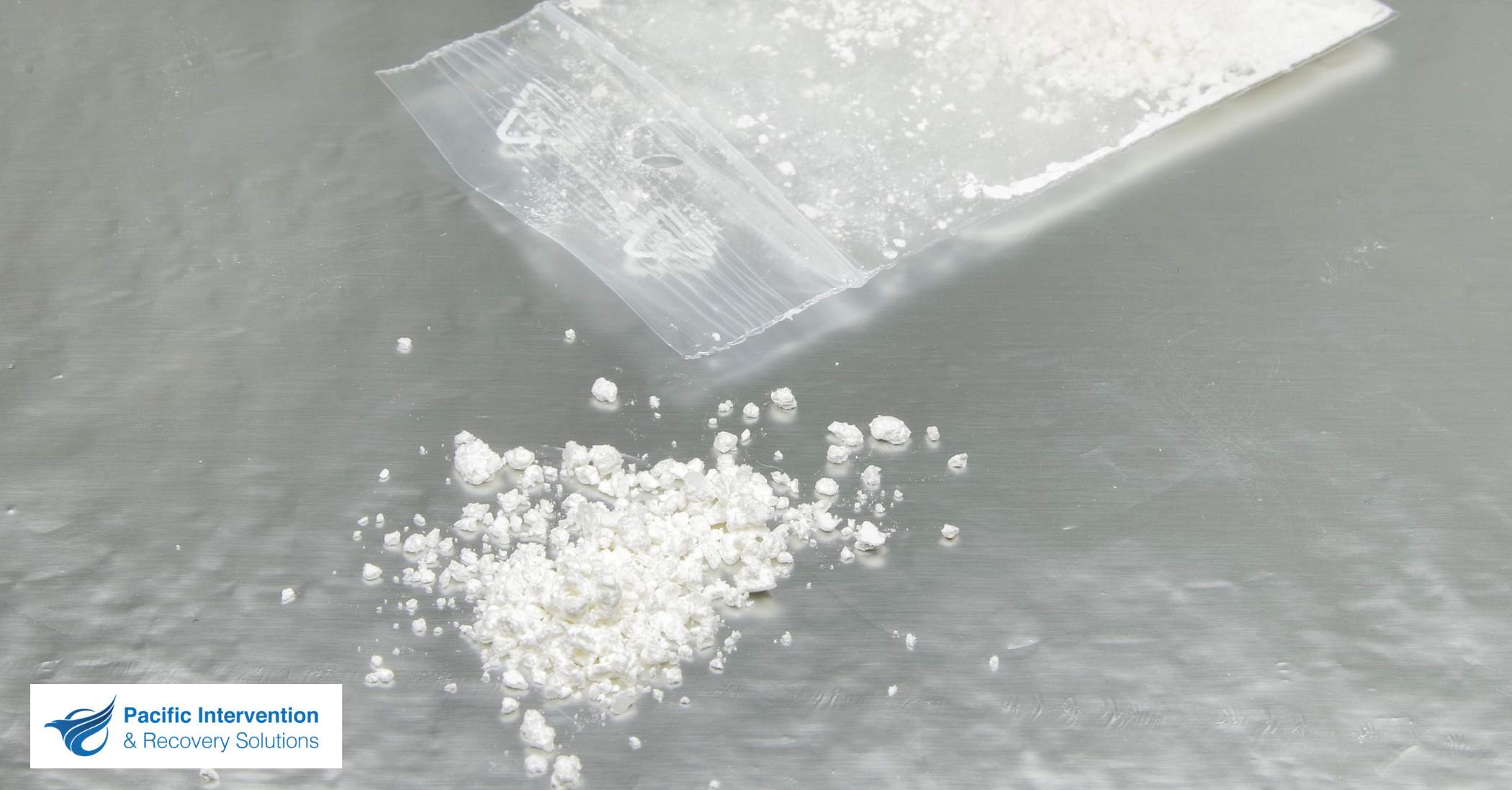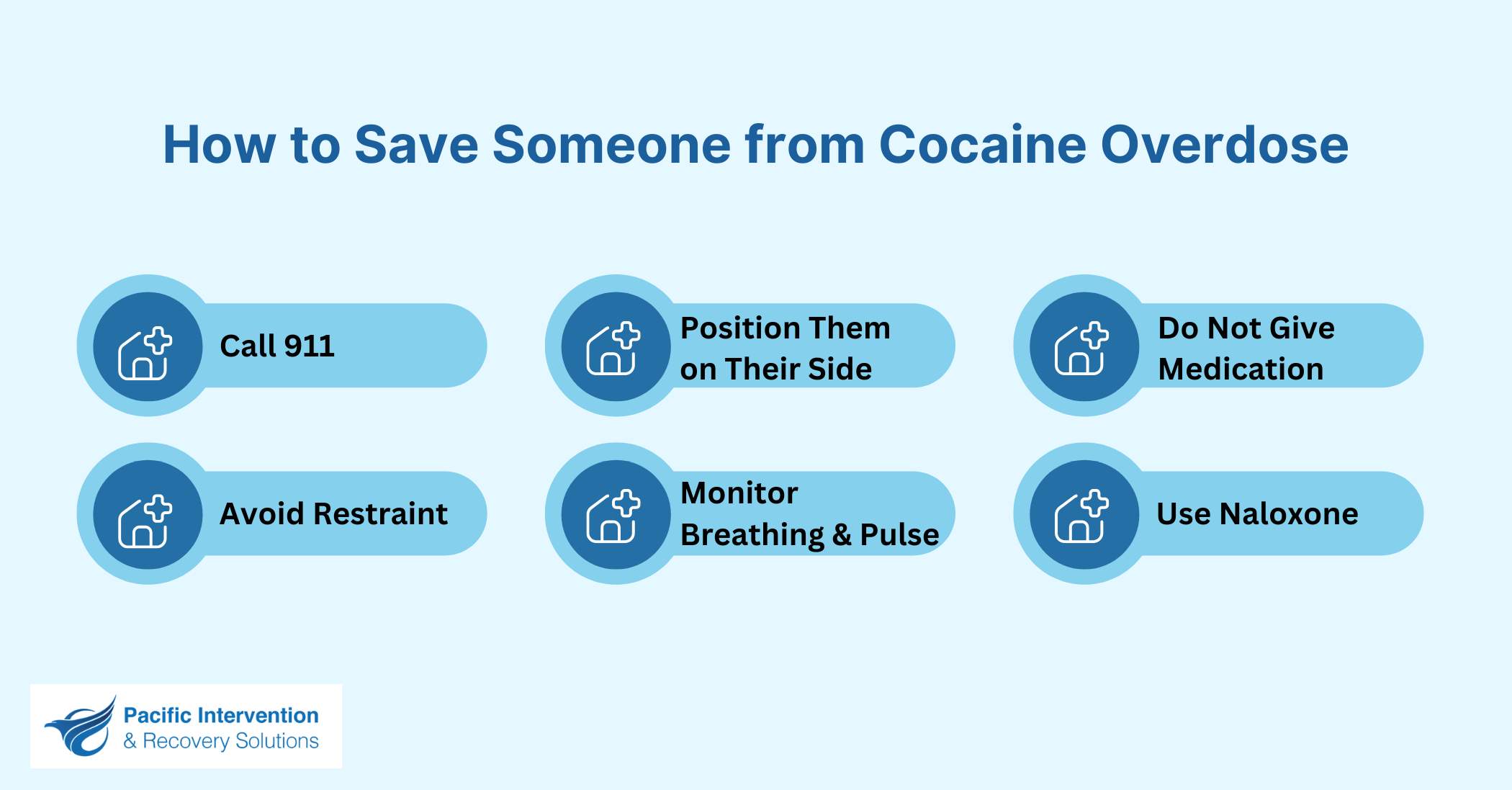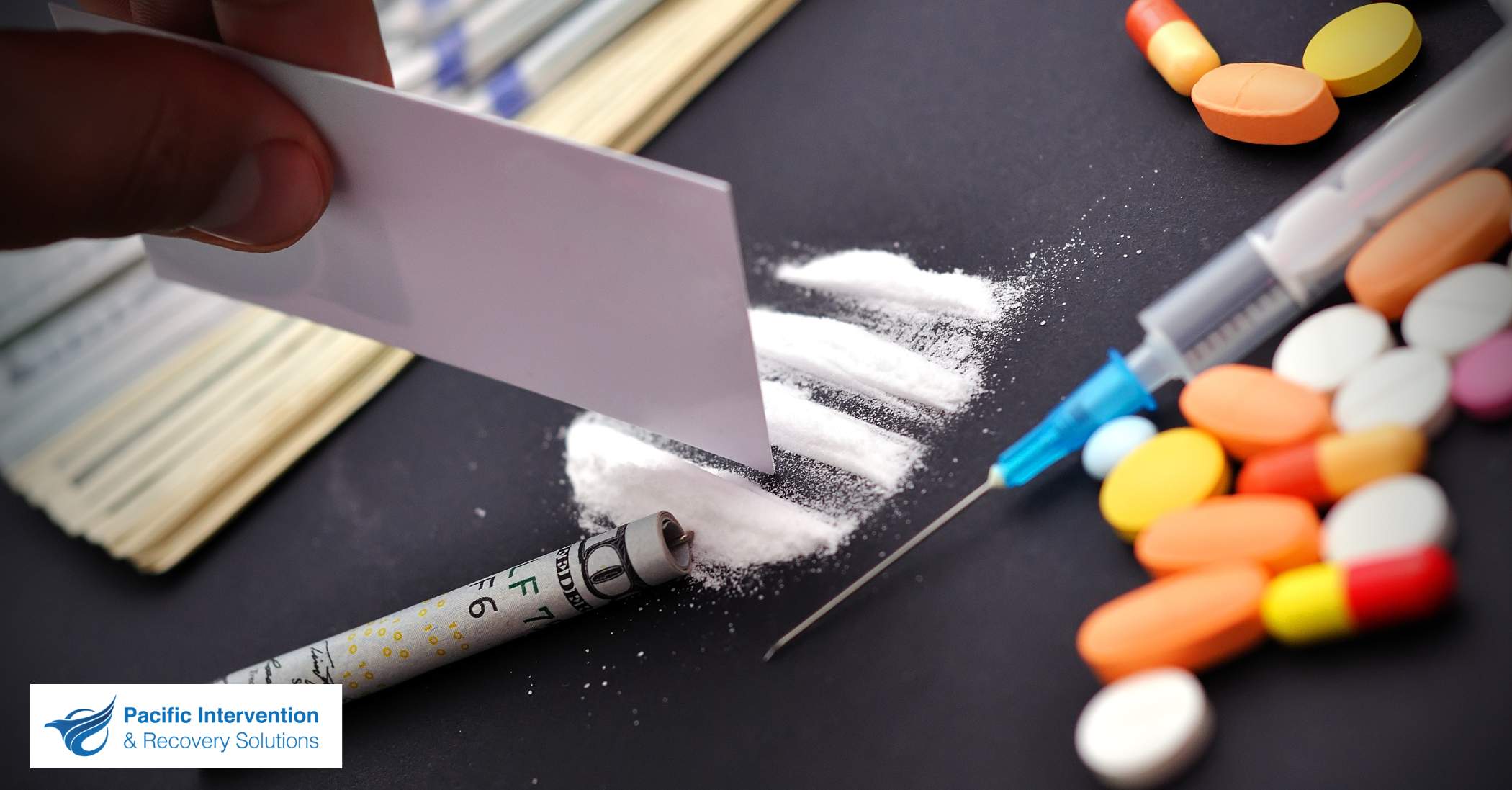Cocaine overdose is a life-threatening condition requiring immediate medical attention. Excessive use overstimulates the body, causing severe health complications and potentially fatal outcomes.
For those struggling with substance use or their loved ones, understanding the risks and recognising overdose symptoms is crucial for effective emergency response.
This guide offers essential insights into identifying overdose symptoms, responding in emergencies, and seeking professional help. It also explores prevention strategies and the importance of rehab in breaking addiction and achieving long-term recovery.
What is a cocaine overdose?
A cocaine overdose occurs when the drug’s stimulant effects overwhelm the body, leading to severe complications like irregular heartbeats, seizures, or cardiac arrest.
The risk rises with higher doses, frequent use, or mixing cocaine with substances like alcohol or opioids. Due to varying purity and strength, even first-time users are at risk. Recognising these dangers is critical for swift intervention and addressing underlying addiction.
Common Causes of Cocaine Overdose
Cocaine overdose can result from several factors, often linked to how the drug is used or combined with other substances. Understanding these causes is crucial to recognising and preventing life-threatening situations:
- High Dosage: Cocaine’s powerful stimulant properties can lead users to overestimate what is safe, particularly with repeated use, increasing the risk of overdose.
- Mixing Substances: Combining cocaine with other substances, such as opioids (e.g., fentanyl) or alcohol, creates a toxic mix that significantly amplifies the risk of life-threatening reactions.
- Adulterated Cocaine: Street cocaine is often laced with harmful additives or other potent drugs, making its effects unpredictable and dangerously powerful.
- Underlying Health Conditions: Pre-existing conditions like heart disease, high blood pressure, or chronic illnesses intensify the risks of cocaine use, heightening the likelihood of severe complications.

How do you know if someone is overdosing on cocaine?
Recognising the signs of a cocaine overdose quickly is essential for providing lifesaving care. The severity of symptoms depends on factors such as the amount of cocaine consumed, the method of use, and the Individual’s overall health.
Early Signs to Watch For
- Rapid heart rate and elevated blood pressure
- Intense agitation or extreme restlessness
- Profuse sweating and uncontrollable shaking
- Severe headache
Advanced and Life-Threatening Symptoms
- Cardiac Symptoms: Chest pain, irregular heartbeats, or heart attack
- Neurological Symptoms: Seizures, confusion, or loss of consciousness
- Respiratory Symptoms: Shortness of breath, difficulty breathing, or respiratory arrest
- Hyperthermia: Dangerously high body temperature caused by increased metabolic activity
Psychological Effects
Severe mental symptoms, such as paranoia, hallucinations, or violent behaviour, can complicate an already critical situation and make it harder to intervene effectively.
Emergency Steps: How to Respond to a Cocaine Overdose
Cocaine overdoses can be life-threatening, but acting quickly and calmly can save lives. Follow these steps for an effective emergency response:

1. Call Emergency Services Immediately (911)
- Clearly describe the person’s symptoms and provide any known details about drug use.
- Follow the dispatcher’s instructions while waiting for medical help to arrive.
2. Ensure Safety and Monitor Vital Signs
- Position the Individual Safely: Place the person in the recovery position (on their side) to prevent choking if they vomit.
- Monitor Breathing and Pulse: Watch for signs of respiratory distress or cardiac arrest. If trained, be prepared to administer CPR if necessary.
3. Prevent Further Harm
- Avoid Restraint: Do not restrain the person, as this may worsen agitation or cause additional injury.
- Don’t Administer Substances: Avoid giving food, water, or any other substances, as these won’t counteract the overdose and may worsen the condition.
4. Use Naloxone (Narcan) if fentanyl is suspected
Due to the rising risk of cocaine being laced with fentanyl, administer naloxone if available. Naloxone can reverse opioid-induced respiratory failure, buying critical time until emergency medical services arrive.
The Importance of Medical Intervention
A cocaine overdose is a critical medical emergency that requires advanced care. Emergency responders and hospital staff are trained and equipped to provide lifesaving treatments, including:
- Cardiovascular Stabilisation: Medications to regulate heart rate, blood pressure, and other cardiac functions.
- Neurological Support: Anti-seizure medications and continuous monitoring to protect brain function.
- Cooling Measures: Specialised techniques to lower dangerously high body temperatures caused by hyperthermia.
- Respiratory Assistance: Oxygen therapy or mechanical ventilation to support breathing if it becomes impaired.
Immediate action is essential, as delaying medical treatment significantly increases the risk of permanent damage or death. Acting quickly can make all the difference in saving a life.
Myths About Cocaine Overdose: What Not to Do
Misinformation can lead to dangerous delays in providing practical help during a cocaine overdose. It’s essential to address and correct these common myths:
Myth 1: Overdose Only Happens to Heavy Users
Reality: Overdose can affect anyone, including first-time or casual users. Factors such as drug purity, individual health conditions, and method of use can trigger severe reactions.
Myth 2: Cold Showers Help Revive Overdose Victims
Reality: Cold showers are not only ineffective but may also worsen the situation by causing shock or exacerbating hyperthermia.
Myth 3: You Should Let Them Sleep It Off
Reality: Cocaine overdose symptoms can escalate rapidly, even if the person appears to stabilise temporarily. Immediate medical intervention is vital to prevent serious complications or death.
Preventing Cocaine Overdose
The safest way to prevent a cocaine overdose is to avoid drug use entirely. However, for those who use cocaine, harm reduction strategies can significantly lower the risk of life-threatening situations.
Harm Reduction Tips
- Test Drugs for Adulterants: Use drug-checking kits to detect harmful additives, such as fentanyl, which can drastically increase the risk of overdose.
- Avoid Using Alone: Always have someone nearby who can provide assistance or call for help in case of an emergency.
- Limit Alcohol and Polysubstance Use: Mixing cocaine with alcohol or other drugs amplifies its dangers, increasing the likelihood of overdose.
Educating Yourself and Others
Raising awareness is one of the most effective ways to prevent overdoses. By learning about the risks and sharing this knowledge, you can help foster safer practices and ensure that those around you are prepared to act in an emergency.
Supporting Long-Term Recovery
Addressing the root causes of cocaine use is essential to prevent further harm and fatalities. Recovery from addiction is achievable through comprehensive treatment programs that empower individuals to regain control over their lives.
Understanding Rehab Duration
The length of rehabilitation varies based on individual needs and the severity of addiction. Programs typically range from 30 to 90 days, with longer durations often leading to better outcomes.
Treatment Options at Pacific Interventions
Pacific Interventions offers personalised, evidence-based care tailored to each client’s unique journey:
- Inpatient Rehab: Provides a structured environment for intensive therapy and support, ideal for those requiring immersive care.
- Outpatient Programs: Designed for individuals balancing recovery with daily responsibilities, offering flexibility without compromising treatment quality.
- Family Interventions: Engages loved ones in the recovery process, fostering a supportive home environment and addressing familial dynamics.
- Post-Treatment Support: Includes ongoing counselling and coaching to prevent relapse and support sustained sobriety.
At Pacific Interventions, we ensure each client receives individualised, evidence-based care to promote lasting healing and recovery.

What are the long-term effects of a cocaine overdose?
Surviving a cocaine overdose often comes with significant long-term consequences, affecting physical health, mental well-being, and social relationships.
Physical Health Risks
- Chronic cardiovascular issues, such as high blood pressure, arrhythmias, and heart damage.
- Neurological issues, including memory loss and impaired cognitive function.
- Increased susceptibility to future overdoses due to weakened physical resilience.
Mental and Emotional Challenges
- Persistent anxiety, depression, or post-traumatic stress disorder (PTSD) is linked to the overdose experience.
- Difficulty rebuilding relationships with family, friends, and coworkers, who were strained by addiction.
Financial and Social Consequences
- Job loss or diminished earning potential due to ongoing substance-related issues.
- Legal troubles arising from drug use, possession, or related criminal activity.
Final Thoughts
Cocaine overdose is a preventable tragedy. Raising awareness, taking timely action, and seeking professional help can save lives and support recovery. Recognising the warning signs and knowing how to respond in an emergency are crucial steps in preventing irreversible harm.
If you or someone you love is struggling with cocaine use, don’t wait to seek help. At Pacific Interventions, we provide comprehensive care that addresses the physical, emotional, and social aspects of addiction. Our evidence-based programs empower individuals and families to regain control and build healthier, safer futures.



